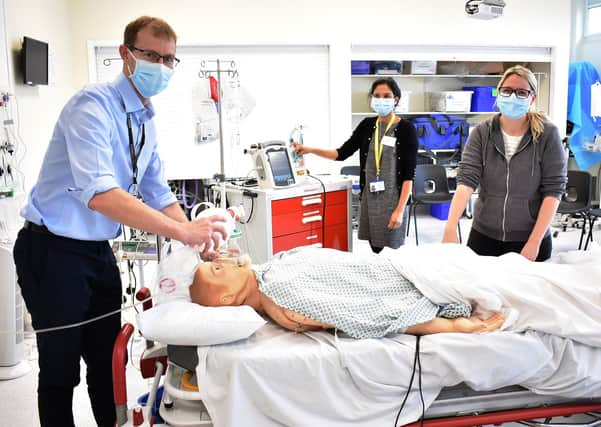Eastbourne DGH starts rare simulation training for doctors


The simulation training for new specialist cardiac doctors will improve their skills with heart procedures.
Eastbourne DGH is one of only eight approved hospitals in the UK to offer doctors the opportunity to learn and practise procedures in a simulated situation using high-tech mannequins and IT training devices.
Advertisement
Hide AdAdvertisement
Hide AdProfessor Nikhil Patel, consultant cardiologist and course director said, “During these challenging times we are delighted to be taking part in this improved form of training for cardiac doctors.
“We are proud that Eastbourne DGH is one of a handful of hospitals in the UK selected to be involved.
“Simulation training has been around a long time in the aviation industry and is now integral in medical training. This training uses high-tech mannequins and simulators to help junior doctors learn and develop their technique so that they are safe and prepared before they perform these procedures on patients.
“The feedback we have received from the British Cardiac Society on our course, as well as the trainees themselves, is extremely positive.”
Advertisement
Hide AdAdvertisement
Hide AdDr Richard Veasey, consultant cardiologist said, “We were very excited to have been able to deliver this with social distancing and the new challenges this year has brought us.”
The simulation training covers team working, examining blood vessels using X-ray, pace making procedures, and cardiac echocardiography.
The British Cardiovascular Society say that all cardiology trainees should undertake a course incorporating simulation based training before, or very early on in their cardiology career.